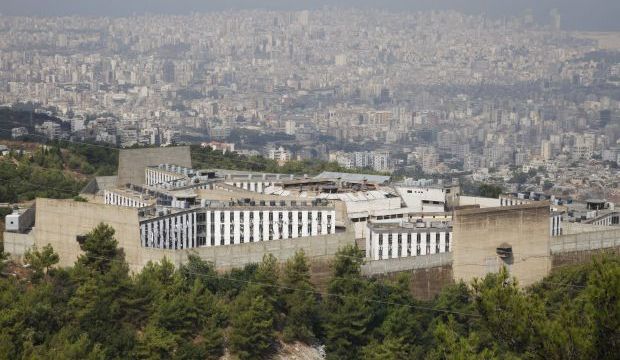Beirut, Asharq Al-Awsat—MTV Lebanon’s new weekly show Deprived of Freedom hopes to reduce crime rates by allowing its audience a window into the criminal lives of the country’s prisoners.
According to programmer and presenter Samir Youssef, the aim of the show is to raise awareness of criminal activity and act as a deterrent to potential perpetrators by interviewing prisoners and reconstructing scenes of the crimes they committed.
“By hosting a number of prisoners who are serving their sentences, I wanted to give the viewers a warning so as not to make light of such crimes and to make them aware of the punishment awaiting them should they committed similar crimes,” Youssef told Asharq Al-Awsat.
The prime time TV show airs on a Sunday evening immediately after the eight o’clock news bulletin.
The guests on Deprived of Freedom are men and women who have committed crimes in a “moment of recklessness,” in the words of Youssef. The prisoners recount how they planned and committed their crimes, and how they now view the crime very differently from behind bars.
So far Youssef has hosted a man who killed his own brother in a fight over inheritance, a man who murdered his wife for having committed adultery, and someone who killed four people in a robbery.
When asked whether the show might elicit sympathy for the criminals, Youssef said, “No not at all, all that we want to do through the show is to prevent crimes before they are committed and shed light on other solutions such as resorting to the law, instead of attempting to gain rights by force. This is because when a criminal carries out their crime, they do not imagine the amount of harm that they may inflict on their family as well as on themselves.”
Youssef added, “The warning also aims at drawing people’s attention to the criminal’s lifestyle in jail.”
The presenter said that the show did criticize Lebanon’s prison system as it highlights the need to get rid of certain punishments and replace them with rehabilitation programs.
The show also hosts judges, psychologists and social workers with the aim of offering solutions that can curb crimes rates.
Farid Lahoud, an activist who works to improve prison conditions in Lebanon, was hosted on the show and said Deprived of Freedom provides vivid material drawn from real life that shows the misery of jail. He said the show broached the thorny issue of prison conditions, particularly the overcrowding that often means prisoners cause great harm to themselves as well as to other inmates.
Lahoud said criminals are similar to patients “to whom we should give a hand, rather than blaming them all the time. For them, this TV show is a glimmer of hope whereby they can vent their fears, worry and regret all at once.”
Some of the prisoners who were interviewed are held in Roumieh, one of Lebanon’s largest prisons. Although it suffers from overcrowding, the prison is relatively cushy when compared to other jails in the Arab world as it is not built underground and overlooks the sea. The prison contains 2,100 prisoners, although it was designed to accommodate half this number. The same problem exists in Tripoli’s prison where 1,100 prisoners squeeze into a space built for 400.
Youssef indicated that the show comes at a crucial time as crime rates in Lebanon soar following the collapse of law and order in the wake of the Syrian crisis. He said it was necessary to handle the issue in order to shed light on the motives behind crime.

